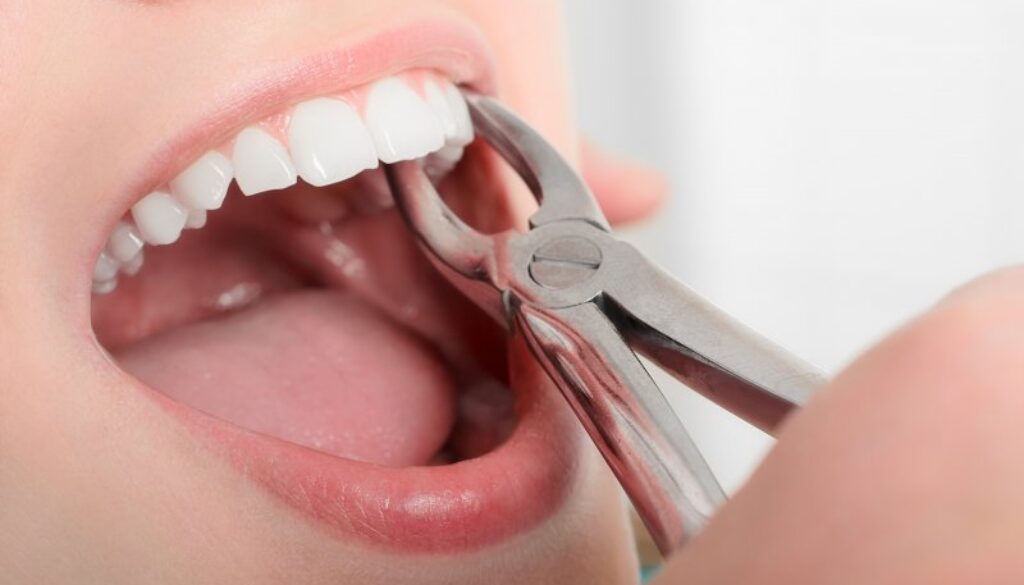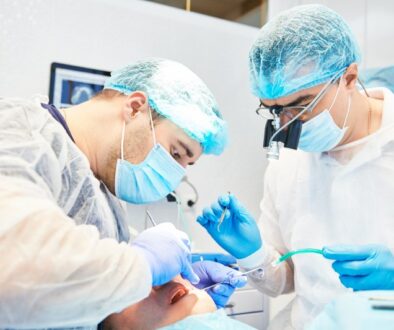TAKING CARE OF YOUR MOUTH AFTER WISDOM TOOTH EXTRACTION
The wisdom teeth (third molars) are the large teeth in the back of your mouth, and they usually emerge between the ages of 17 and 25. When there isn’t enough space, they can become impacted, which can result in pain and infection. To fix the problem, the typical solution is to extract the tooth. If you undergo wisdom tooth removal in Denver, what can you do afterward to encourage faster healing?
What to Expect After Your Surgery
Recovering from wisdom tooth removal involves knowing what to expect and how to effectively respond. Here are some pointers to help you out:
Swelling
You may notice inflammation around the mouth, cheeks, eyes and sides of the face. Typically, the swelling won’t appear until the day following the surgery and will not reach its peek until the second or third day. To reduce the swelling, apply ice packs to the side of the face where the surgery was performed. This should be done for the first 24 to 36 hours following the surgery.
Pain
Usually, an over-the-counter pain reliever like ibuprofen can be used to help reduce any swelling and discomfort. In some instances, the dentist will prescribe pain medication, which could leave you feeling tired and sleepy. You should abstain from driving a vehicle or operating machinery after using the medication.
Diet Restrictions
Immediately after surgery, avoid eating hard or chewy foods. You’ll also want to stay away from consuming hot or cold foods or beverages and sucking on straws. Follow this protocol for the first 24 hours after your wisdom tooth removal.
How Long Does It Take to Recover?
Recovery from wisdom tooth removal is a gradual process. As long as the dentist’s instructions are followed, you can expect to see continued improvements as the days go by. Here is the usual timetable:
- First 24 hours – Blood clot formation
- 2 to 3 days – Improvement in any swelling of the mouth and cheeks
- 7 days – Stitch removal
- 7 to 10 days – Decreased jaw stiffness
- 2 weeks – Decreased swelling
How to Accelerate Your Healing
Blood clots will form at the extraction site. Smoking or chewing tobacco could encourage a condition called dry mouth and cause the clots to dislodge, which can lead to painful and intense bleeding. To encourage healing, avoid tobacco usage, and after the 24-hour period has passed, be sure to eat regular meals throughout the day. Providing your body with a constant supply of nutrients will better foster the healing process.
While having your wisdom tooth removed isn’t necessarily a fun experience, by following the above guidelines, you can properly heal and get your life back on track!
About the Author
Dr. Brian Fangman earned his dental degree from The Ohio State University College of Dentistry. Specializing in dental surgery, he enjoys helping his patients experience the bliss of having their oral health restored. A member of the American Board of Oral and Maxillofacial Surgery, American Association of Oral and Maxillofacial Surgeons and other organizations, Dr. Fangman performs wisdom tooth removal at Altitude Oral and Facial Surgery. He can be reached for more information through his website.




